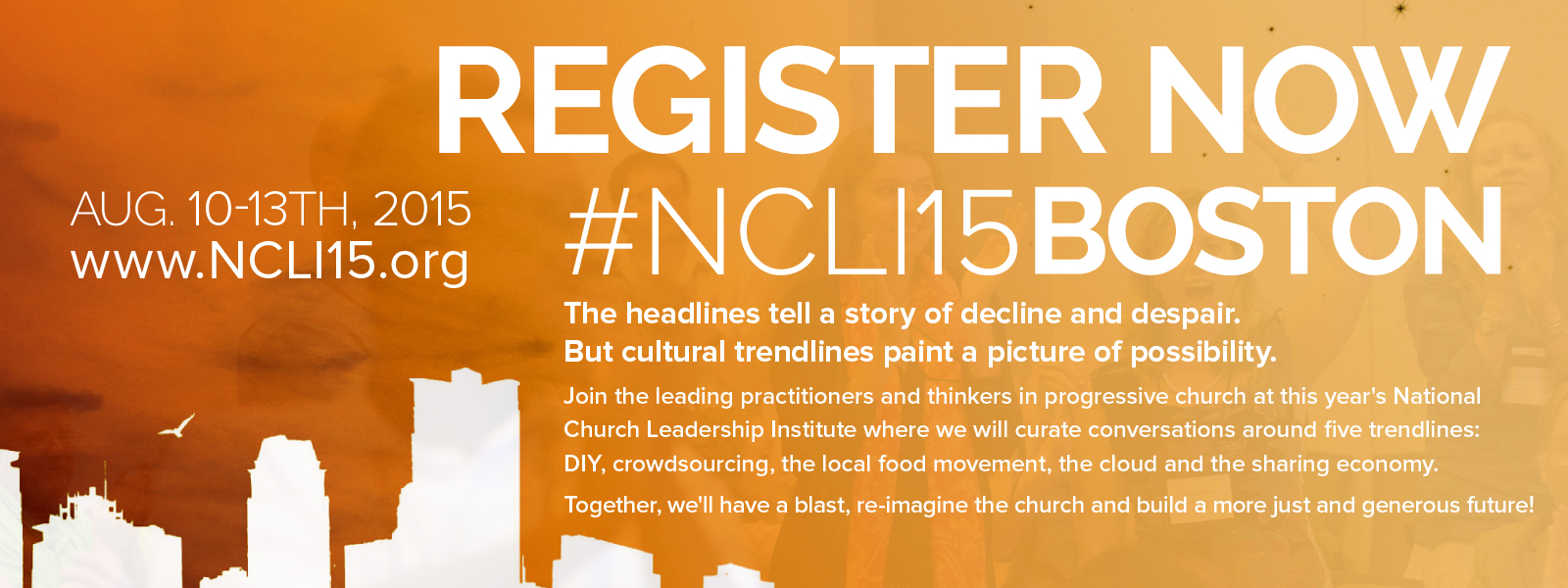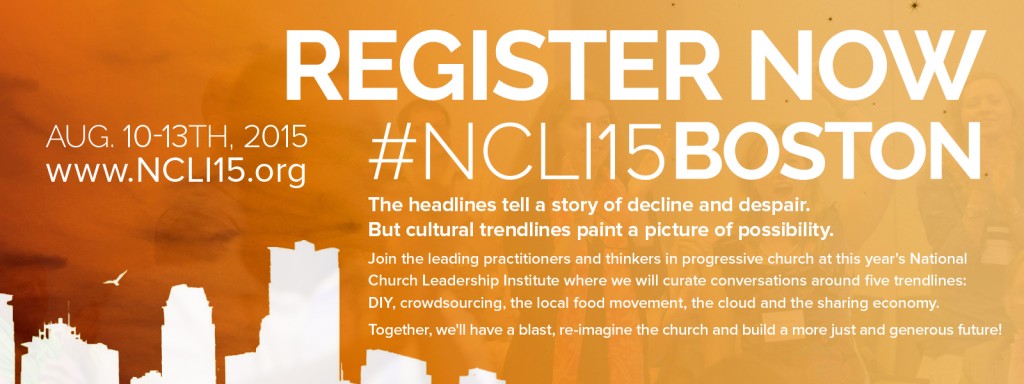For a few days this week I am attending the National Church Leadership Institute sponsored by the Center for Progressive Renewal. The first observation I will make is that church people still have faith and hope in and for the future! It is so refreshing to attend a conference that is upbeat and hopeful.
So what is Progressive Christianity?
Progressive Christianity grew out of the idea that it was okay to question tradition; the idea that it is okay to accept human diversity, there is a strong emphasis on social justice and care for the poor and oppressed, and environmental stewardship. Progressive Christians have a profound belief in the centrality of the instruction to “love one another” (John 15:17) within the teachings of Jesus Christ. This focus leads to a faith that promotes values such as compassion, justice, mercy, and tolerance usually through social and political activism. This type of Christianity comes from the Hebrew Prophetic tradition of the care for the downtrodden in society and a preferential option for the poor.
Some of the characteristics of Progressive Christianity are:* (this list is not meant to be complete or exhaustive)
A spiritual vitality and expressiveness, including participatory, arts-infused worship as well as a variety of spiritual disciplines and practices such as prayer or meditation.
Intellectual integrity and creativity, including openness to questioning and an insistence upon intellectual rigor.
Understanding of spirituality as a real effective and psychological or neural state
Critical interpretation of the scripture as a record of human historical & spiritual experiences and theological reflection after that instead of a composition of literal or scientific facts. Acceptance of modern historical Biblical criticism.
Acceptance (although not necessarily validation) of people who have differing understandings of the concept of “God”, such as pantheism, deism, non-theism, as a social construct, or as a community.
Understanding of Church communion as a symbol or reflection of the body of Christ
An affirmation of Christian belief with a simultaneous sincere respect for values present in other religions and belief systems
An affirmation of both human spiritual unity and social diversity
An affirmation of the universe, and more immediately the Earth, as the natural and primary context of all human spirituality.
An unyielding commitment to the Option for the poor and a steadfast solidarity with the poor as the subjects of their emancipation, rather than being the objects of charity.
Compassion for all living beings.
What I find most compelling in this system of theological and Church thought is that acceptance, but not necessarily approval, is the fundamental concept. We need to be willing to accept that the way we are “doing church” may no longer be working. This does not mean we have to change theology or even change the liturgical style, but we need to change the conversation. Pope Francis has not changed one dot or title of Roman Catholic theology but he has shifted the conversation to one of more compassion than one of this is law and if you don’t like it you are going to hell.
I have always heard that we are to “love the sinner and hate the sin,” well, we have tried the hate thing long enough it is time to put the love thing into action.


